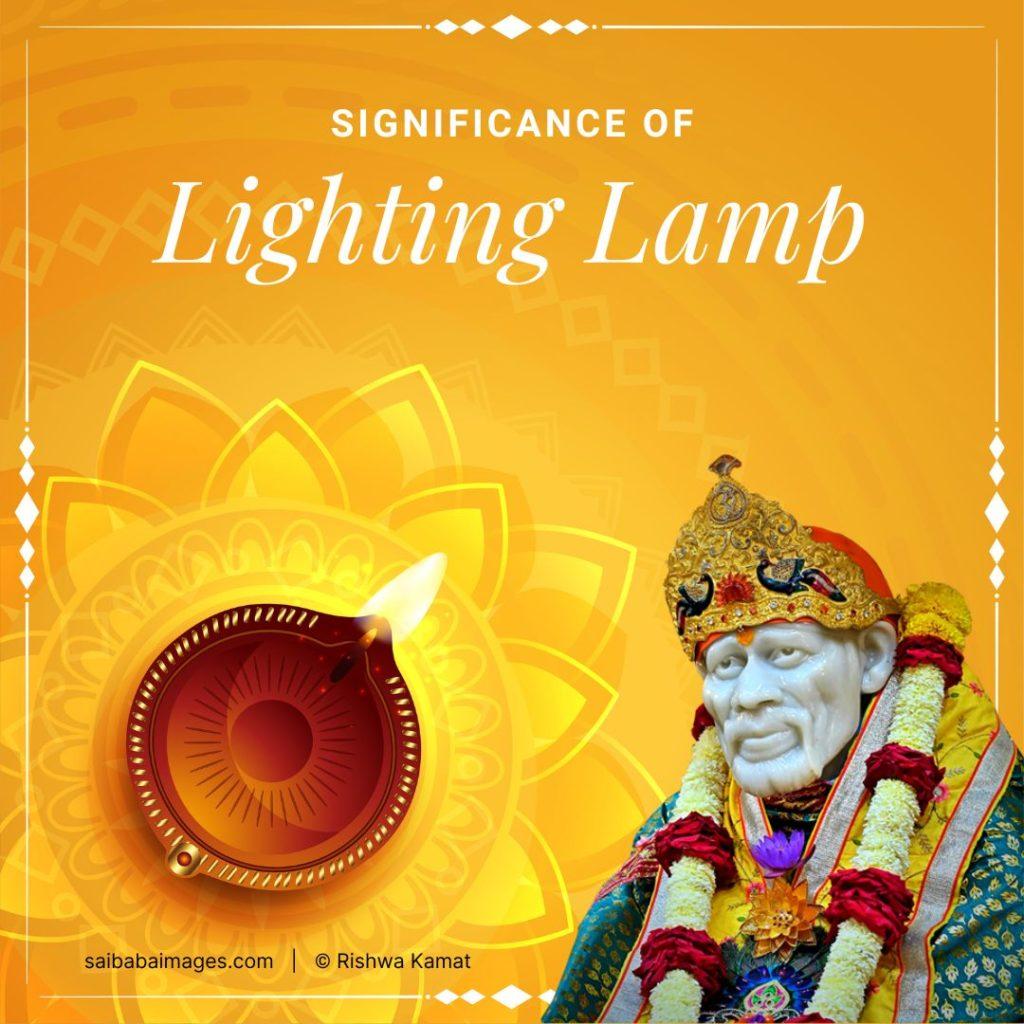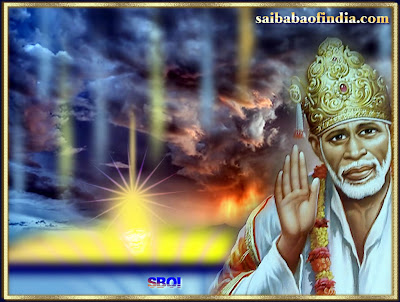
In Hinduism, lighting a lamp is considered an offering to the gods and a symbol of respect and gratitude.
In Buddhism, lighting a lamp represents the dispelling of ignorance and the attainment of wisdom.
In Jainism, lighting a lamp signifies the spreading of knowledge and the spreading of light into the world.
In many cultures, lighting a lamp is seen as a way to invite positive energy and ward off negativity.
The act of lighting a lamp is often accompanied by prayers, affirmations, and mantras to further reinforce its symbolic significance.
This is another article in the Sai Prashnavali series. Every post as we always say is inspired by our Sai Baba and we only follow His guidance and directions. The guidance comes in the form of Leela or as a spark of an idea while working on previous posts. While we work on the present one, Baba is already on to the next. The topic of this post came from one of the conversations with a Sai Devotee and was noted down then and there. Similarly, a few more are noted and many on the go will be added. The purpose of starting this article is to share how the topics of the blog posts are guided by our Sai Baba and we are just a medium to convey the full-fledged message to you all. So we request you all to go through the posts and assimilate Baba’s message and teachings. Also, do not forget to share with your family and friends.
What Is The Significance Of Light A Lamp As Per Hindu Scripts
Lighting a lamp has significant religious and cultural significance in Hinduism. Some of the key reasons for lighting a lamp in Hinduism are:
- To ward off evil spirits and negative energy: Lighting a lamp is believed to dispel darkness and negativity, and protect the home and individuals from evil spirits and negative energy.
- To honor Gods and Goddesses: Hindus light lamps as an offering to Gods and Goddesses during prayers and rituals, seeking Blessings and Divine Guidance.
- To celebrate festivals: Hindu festivals like Diwali, Karthik Poornima, and others involve the lighting of lamps as a symbol of joy, peace, and celebration.
- To mark the beginning of important events: Hindus light lamps at the beginning of significant events like weddings, poojas, and other ceremonies.
- To symbolize knowledge and wisdom: In Hinduism, light symbolizes knowledge and wisdom, and lighting a lamp is seen as an offering to attain these qualities.
In conclusion, lighting a lamp holds deep cultural and spiritual significance in Hinduism, representing positivity, protection, knowledge, and devotion to the divine.
Why Do Agnihotris Have Fire Next To Them
Agnihotris are Hindu practitioners who perform a fire ceremony called Agnihotra, which is considered to be an important part of Hindu spirituality. The fire next to them is a key part of this ceremony and has several significant reasons. Some of these include:
- To purify the atmosphere: The Agnihotra fire is believed to purify the atmosphere and create positive energy, promoting health and well-being.
- To offer prayers and offerings: During the Agnihotra ceremony, the practitioners offer prayers, mantras, and offerings to the fire, seeking blessings and guidance.
- To connect with the divine: The fire is considered to be a symbol of the Divine, and lighting the fire during the Agnihotra ceremony is seen as a way of connecting with the divine and seeking divine guidance.
- To symbolize transformation and renewal: The fire symbolizes transformation and renewal, and the Agnihotra ceremony is considered to be a way of transforming and renewing one’s self.
In conclusion, the fire next to Agnihotris during the Agnihotra ceremony is a significant part of Hindu spirituality, representing purification, connection with the divine, transformation, and renewal.
What Is The Significance Of Lighting A Lamp In Datta Sampradaya
Lighting a lamp has significant significance in the Dattatreya tradition, which is a Hindu tradition that worships Lord Dattatreya as the embodiment of the divine trinity of Brahma, Vishnu, and Shiva. Some of the key reasons for lighting a lamp in the Dattatreya tradition are:
- To symbolize the presence of Lord Dattatreya: The light of the lamp is seen as a symbol of the presence and blessings of Lord Dattatreya.
- To dispel darkness and negativity: Lighting a lamp is believed to dispel darkness and negativity, and protect individuals from evil spirits and negative energy.
- To offer devotion to Lord Dattatreya: Lighting a lamp is seen as a way of offering devotion and reverence to Lord Dattatreya, seeking blessings and guidance.
- To mark the beginning of important rituals and ceremonies: The lighting of a lamp is an important part of the rituals and ceremonies performed in the Dattatreya tradition, marking the beginning of the event.
- To symbolize knowledge and wisdom: In the Dattatreya tradition, lighting a lamp symbolizes knowledge and wisdom, which are considered to be key qualities embodied by Lord Dattatreya.
In conclusion, lighting a lamp holds significant spiritual and cultural importance in the Dattatreya tradition, representing the presence of Lord Dattatreya, protection from negativity, devotion, knowledge, and wisdom.
What Is The Significance Of Light A Lamp For Devotees Of Sai Baba
Lighting a lamp has significant spiritual and symbolic importance in the teachings of Shirdi Sai Baba. For his followers, lighting a lamp represents the removal of ignorance and the attainment of knowledge and wisdom. It symbolizes the dispelling of darkness and the spreading of light and truth. Baba encouraged his followers to light lamps as a way of offering devotion to the divine and seeking blessings. He believed that lighting a lamp in his shrine or in one’s home could help to purify the mind and bring peace, positivity, and blessings into one’s life. According to Baba’s teachings, lighting a lamp is also a way of paying homage to the divine and reminding oneself of the importance of devotion and inner peace.
Unlike our pattern of ending the posts with a quote from Bhagwad Gita, we are sharing the quote now and our interpretation with regard to the subject of the post as a conclusion.

ज्ञानेन तु तदज्ञानं येषां नाशितमात्मन: | तेषामादित्यवज्ज्ञानं प्रकाशयति तत्परम् ||
— Bhagavad Gita: Chapter 5, Verse 16
Translation word by word: jnaena—by divine knowledge; tu—but; tat—that; ajnanam—ignorance; yesham—whose; nashitam—has been destroyed; atmanah—of the self; teṣham—their; aditya-vat—like the sun; jnanam—knowledge; prakashayati—illumines; tat—that; param—Supreme Entity
Transliteration: jnanena tu tad ajnanam yesham nashitam atmanah, tesham aditya-vaj jnanam prakashayati tat param
Interpretation As It Is: But for those whose ignorance (ajnana) is removed by divine knowledge (Brahm jnana), the Supreme Truth (Para Brahm) is revealed, just as the sun illuminates everything when it rises.
Our Interpretation: When the Sun rises and it reflects and shines on everything, like that, when one attains and realizes the divine knowledge (Brahma Jnana), their ignorance (ajnana) is removed and they can clearly identify the ultimate truth and Maya. Here Sun and its light are used as an analogy, the same way our tradition based on dharma and our masters and saints used light in the form of Dhuni or lamp just to remind us of The Ultimate Truth that we should realize and to remove the ignorance, and so we can become one with our Shirdi Sai Baba or the Para Brahm itself.
List of Devotees of Sai Baba of Shirdi
© Shirdi Sai Baba Life Teachings and Stories – Member of SaiYugNetwork.com




Jai Sai! Thanks so much for sharing importance of lighting lamp.
In holy scripture Sri Sripada Srivallabha Charitamrutam , many details about Fire is explained especially parents and Grandparents of Lord Sripada Srivallabha used to perform fire rituals. Its importance in destroying karmas is also explained beautifully in Chapter-49 of the holy book.